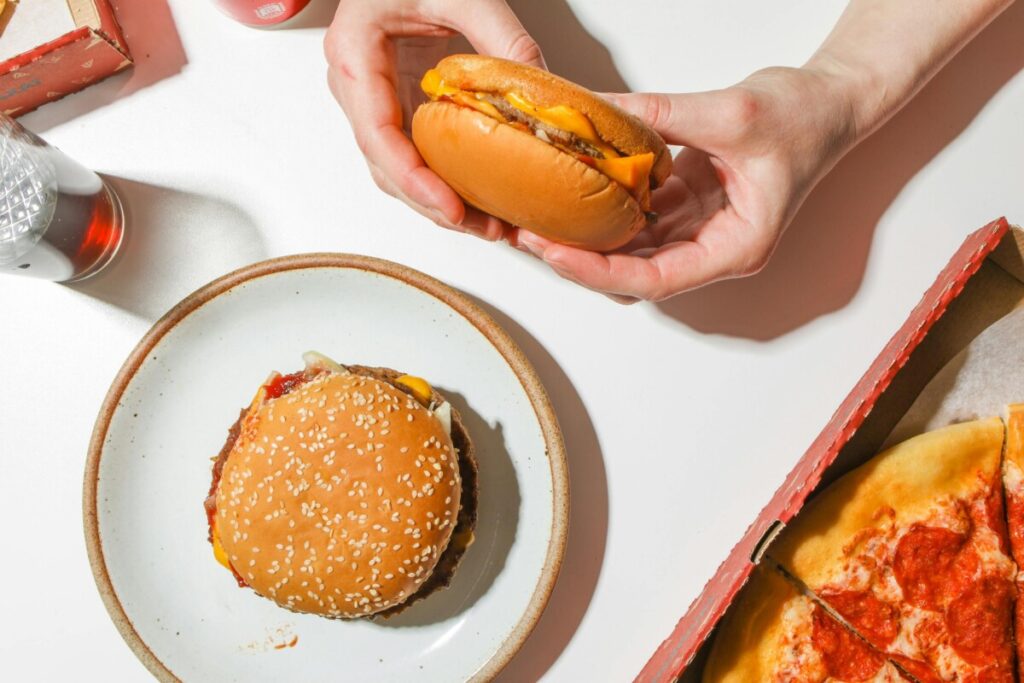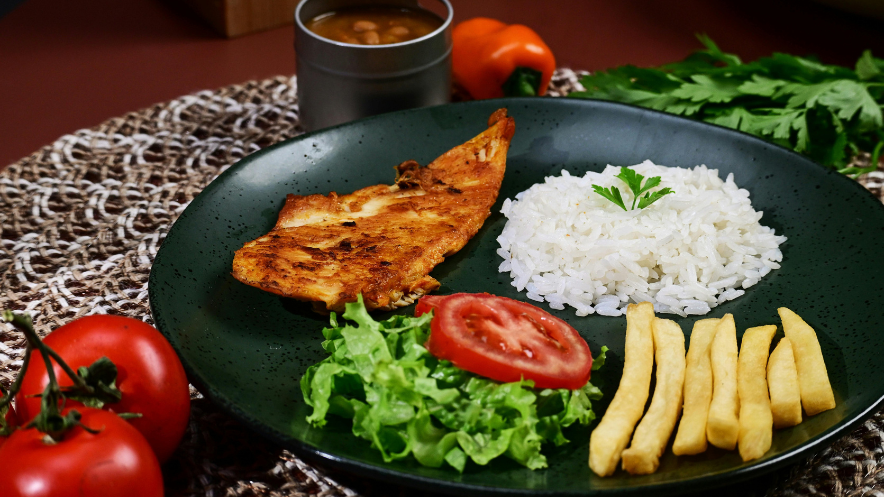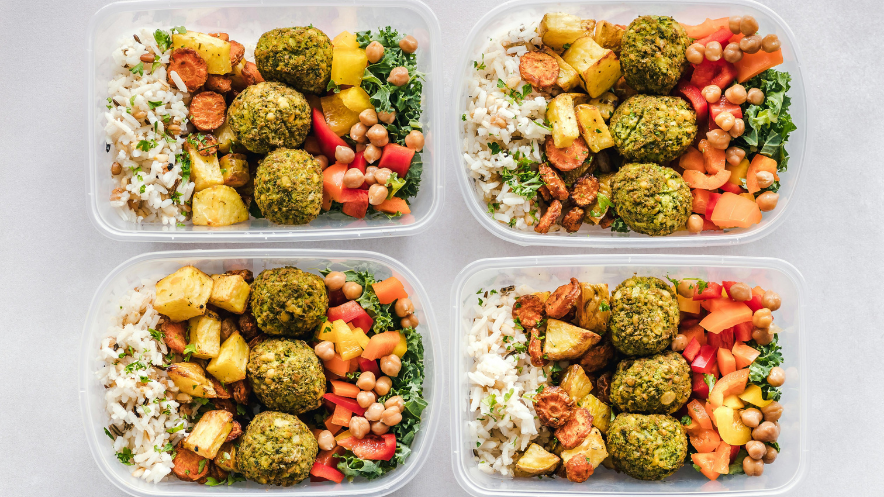“Uncovering the Dangers: Ultra-processed Foods and Your Health”

In today’s fast-paced world, ultra-processed foods have become a ubiquitous part of our diets. These foods are often marketed as convenient, tasty, and affordable options for busy individuals and families. However, beneath their appealing packaging and enticing flavors lies a darker truth – ultra-processed foods can have severe negative impacts on our health. In this comprehensive guide, we will delve into the world of ultra-processed foods, exploring their definition, prevalence, and the alarming health risks associated with their consumption. By the end of this article, readers will be equipped with the knowledge and tools necessary to make informed decisions about their dietary choices and prioritize their well-being.
Key Takeaways:
Ultra-processed foods are highly modified, often containing artificial additives, preservatives, and unhealthy levels of sugar, salt, and fat.
Consuming ultra-processed foods regularly can lead to an increased risk of chronic diseases such as obesity, type 2 diabetes, heart disease, and certain types of cancer.
The food industry heavily influences our food choices through marketing tactics and the widespread availability of ultra-processed foods.
Making healthier choices by incorporating more whole foods into our diets is crucial for our overall health and well-being.
Being mindful of the information presented by the food industry and taking control of our food choices can help us avoid the negative impact of ultra-processed foods on our health.
What are Ultra-processed Foods?
Ultra-processed foods are products that have undergone extensive industrial processing and are typically high in calories, added sugars, unhealthy fats, and sodium while being low in essential nutrients and fiber. These foods are often referred to as “junk food” or “fast food” and are commonly found in the form of packaged snacks, sugary drinks, and ready-to-eat meals. Unlike minimally processed or whole foods, ultra-processed foods have been stripped of most of their nutritional value through multiple stages of processing and modification with artificial ingredients.
It is crucial to distinguish between processed and ultra-processed foods. Processed foods have undergone some form of alteration, such as freezing, canning, or cooking, but still retain most of their original characteristics. On the other hand, ultra-processed foods are subjected to several additional processing steps that significantly alter their nutritional composition and introduce a plethora of artificial additives. Some common examples of ultra-processed foods include chips, cookies, soda, frozen dinners, and processed meats.
The Prevalence of Ultra-processed Foods in Our Diets
Ultra-processed foods have become a significant part of the modern diet, accounting for a substantial portion of our daily caloric intake. In the United States alone, ultra-processed foods constitute nearly 60% of the calories consumed by adults and almost 70% of the calories consumed by children. The convenience, affordability, and aggressive marketing of these products have contributed to their widespread consumption across various demographics.
The food industry plays a pivotal role in the pervasiveness of ultra-processed foods. Through extensive advertising campaigns and strategic product placement, food manufacturers promote these foods as attractive options for individuals with busy lifestyles. Moreover, the relatively low cost and extended shelf life of ultra-processed foods make them an appealing choice for many consumers, particularly those with limited time or financial resources.
Health Risks Associated with Ultra-processed Foods
People who eat ultra-processed foods often face many health risks. They are at risk for chronic diseases. Many studies have shown a strong link. Eating a lot of ultra-processed foods raises the risk of obesity, type 2 diabetes, heart disease, and some forms of cancer.
One of the primary concerns with ultra-processed foods is their potential to contribute to weight gain and obesity. These foods are often high in calories unhealthy fats and added sugars. They can lead to eating too much and gaining weight. Also, ultra-processed foods lack fiber and essential nutrients. This can disrupt appetite regulation and cause overeating. Also, eating ultra-processed foods is linked to a higher risk of getting type 2 diabetes. These foods have a high glycemic load and added sugars. They can cause quick spikes in blood glucose. This strains the body’s insulin response and can lead to insulin resistance over time.
The link between ultra-processed foods and cardiovascular disease is also well-established. These foods have lots of sodium, unhealthy fats, and added sugars. They can raise blood pressure, cholesterol, and cause inflammation. These are all risk factors for heart disease. Also, some cancers are linked to eating a lot of ultra-processed foods. For example, studies have shown that eating lots of processed meats and refined carbs is linked to a higher rate of colorectal cancer. Both are common parts of ultra-processed foods.
In addition to these chronic diseases, ultra-processed foods can also have a detrimental impact on our gut health. These foods have additives and little fiber. They can disrupt our gut microbiome. It plays a crucial role in our health and immune function.
Identifying and Avoiding Ultra-processed Foods
Ultra-processed foods have big health risks. So, it’s key to spot and avoid them in our diets. One of the best ways to do this is by reading nutrition labels and ingredient lists. Ultra-processed foods often have long ingredient lists. The lists include artificial additives, preservatives, and refined ingredients, like high-fructose corn syrup. Choosing products with shorter, familiar ingredients can reduce eating ultra-processed foods.
Another key part is identifying ultra-processed foods. It involves being aware of misleading marketing claims. Food manufacturers often use terms like “natural” or “healthy” on their packaging. They do this to appeal to health-conscious consumers. However, these claims can be deceptive. They do not always show the product’s true nutrition. It’s crucial to look past the marketing hype. Focus on the real ingredients and nutrition of the food.
Eating more whole foods is key. It will reduce our reliance on ultra-processed foods. Whole foods have many nutrients. They include fruits, vegetables, whole grains, and lean proteins. They provide vital vitamins, minerals, and fiber. These are often missing in ultra-processed foods. We can prioritize whole foods and cook at home. This gives us more control over the ingredients and cooking methods. It ensures a healthier and more balanced diet.
Making Healthier Choices for Ourselves and Our Families
Transitioning to a diet that focuses on whole foods and limits ultra-processed foods can seem scary. But, it is a key step to improving our health and well-being. We can see the benefits of a better diet by eating fewer ultra-processed foods. We should eat more nutrient-rich alternatives.
One effective approach is to plan meals and snacks. This can help us avoid choosing convenient but unhealthy options when we are busy or tired. We can make eating healthier more fun and lasting. We can do this by trying new recipes and adding lots of fruits, vegetables, and whole grains to our meals.
Involving our families in meal planning and cooking can also encourage healthy eating. We can create a supportive environment. We do this by setting a positive example and choosing healthier food together. This environment will prioritize nutrition and well-being.
Remember, changing our diets takes time and effort. But, the long-term benefits make the effort worth it. We can take control of our food choices. We just need to be mindful of the food industry’s influence. Doing this will empower us and our loved ones to lead healthier, more vibrant lives.
Conclusion
The prevalence of ultra-processed foods in our diets has reached alarming levels, contributing to a host of chronic diseases and health issues. By understanding the definition and characteristics of ultra-processed foods, as well as their potential health risks, we can take proactive steps to minimize their consumption and prioritize our well-being.
Making healthier food choices and incorporating more whole foods into our diets is essential for reducing our reliance on ultra-processed foods and promoting optimal health. By being mindful of the influence of the food industry and taking control of our dietary decisions, we can create a positive ripple effect that extends beyond our own lives and into our communities.
As individuals and as a society, we have the power to shift the narrative surrounding ultra-processed foods and advocate for a food system that prioritizes nutrition, sustainability, and public health. By working together to raise awareness, support policies that promote healthy eating, and make informed choices about the foods we consume, we can create a brighter, healthier future for ourselves and generations to come.
https://holisticwellnesswave.com/index.php/2023/10/11/plant-based-nutrition-a-path-to-health/
https://www.fda.gov/
https://www.cancer.org/
FAQs
Q: What are some common examples of ultra-processed foods?
A: Common examples of ultra-processed foods include packaged snacks (chips, cookies, crackers), sugary drinks (soda, energy drinks), frozen dinners, processed meats (hot dogs, sausages), and instant noodles.
Q: How can I tell if food is ultra-processed?
A: You can identify ultra-processed foods by carefully reading the ingredient list. If the product contains a long list of artificial additives, preservatives, and refined ingredients like high-fructose corn syrup, it is likely an ultra-processed food.
Q: Are all processed foods bad for my health?
A: Not all processed foods are inherently unhealthy. Some minimally processed foods, such as canned vegetables or frozen fruits, can be part of a balanced diet. The main concern lies with ultra-processed foods, which have undergone extensive industrial processing and often contain unhealthy levels of added sugars, salt, and fat.
Q: What are some simple ways to reduce my consumption of ultra-processed foods?
A: Some simple strategies to reduce your intake of ultra-processed foods include: planning meals and snacks, choosing whole foods whenever possible, reading nutrition labels carefully, and preparing more meals at home using minimally processed ingredients.
Q: Can I still enjoy treats and snacks while avoiding ultra-processed foods?
A: Yes, you can still enjoy treats and snacks as part of a balanced diet. Opt for healthier alternatives like fresh fruit, unsalted nuts, or homemade snacks using whole food ingredients. Remember, moderation is key, and it’s okay to indulge in your favorite treats occasionally while prioritizing overall healthy eating habits.




